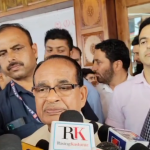Retirement is defined as the act of leaving ones job and stop working (Cambridge dictionary), the act of stopping work at a particular age (Oxford dictionary), withdrawal from active working life (Merriam-Webster dictionary) or seclusion from the world or the act of retreating (Collins dictionary). In India people usually retire at the age of 60 in Government Departments, however retirement age of High Court and Supreme Court judges, according to constitutional provisions is 62 and 65 respectively. In most of the Universities Professors retire at the age of 65. Retirement age varies from country to country, ranging from 58 to 67.In some countries it varies between genders, female retiring slightly earlier than their male counterparts.
A simple and common question comes to mind. What after retirement? Do people feel comfortable after retirement or they get traumatized? Leaving financial issues aside which are a separate topic in itself, what are other challenges that a retiree faces in its post retirement life? To me post-retirement period is altogether a different and new phase of life. After giving precious years of life to a department/ organization including youthful years of high energy and passion when a person returns home he/she has to strive hard again to make new associations and to carve out a dignified niche in the society to remain relevant, a process most challenging.
Even at home the person has to adjust in new set of circumstances and make himself/herself acceptable to the family members who have got acclimatized over the years without his/her presence or with minimum presence. Whole time presence becomes a problem, breeding misunderstanding and contempt. In order to avoid friction within the family and ease out stress some people in their post retirement period search for a part-time job, engage in social/ religious works, politics etc. or worst join an old-age home, if available, as a last resort.
Traditionally seen as a finish line, retirement must be reimagined as a new beginning, the way an eagle takes rebirth after 40 years of its age, transforms itself by breaking its old and much curved beak against a rock and waiting for the new beak to grow, plucking out its old and weak talons and waiting for new talons to grow and shedding away its heavy and long feathers and waiting for new feathers to grow and lives an aggressive and dignified life for another 30 years or so. But for taking rebirth and living another phase of vigorous life one has to undergo transformation which requires both passion and patience. This reimagined concept of retirement emphasizes the importance of active engagement and thoughtful preparation.
Pursuing lifelong learning, duly enshrined in NEP-2020, is a counterpoint to the stereotypical view of retirement. Embracing new areas of knowledge and skills, such as learning a foreign language, or keeping pace with evolving technologies, is a powerful statement against the misconception that growth and learning are confined to the earlier phases of life. Fred Rogers (1928-2003), an American television host and writer has said, “Often when you think you’re at the end of something, you’re at the beginning of something else”. The commitment to continuous learning invigorates the spirit. It not only enriches one’s intellectual life but reinforces a sense of progress. However, a question arises. Is there social acceptance for transformation and taking a rebirth? People die not because of illness or injury; they die because of death of the desire to live. They feel themselves a liability on their family.
A renowned Hindi story tells us about a stationmaster who gets an extension after retirement. The man is so excited to be home he even rejects the offer for extension. His family has got used to a life without him, while he has been away for so many years. So, when he returns home, he feels sidelined and soon enough he realizes that he is considered more of an intrusion in the lives of his family members. Curiously enough, his wife chides him for making unreasonable demands, and asks him to help in the household errands. After thinking for a while, the stationmaster decides to accept the extension and he leaves home once again. The happiness on the faces of his family members assures him that he has taken the right decision. Such a sad scenario is one of the reasons old-age homes have mushroomed across India. When retired persons especially senior citizens are treated like liability after their assets (savings etc.) are siphoned off by their progeny, they get hurt by such an unexpected attitude and realize that they have nowhere to go.
Retired persons should not be treated like vintage cars. They have worked as technocrats, teachers, scientists, business executives, administrators, judges and what not during their service. Their rich experience and skill needs to be harvested even after their retirement but the moment they retire, even their colleagues with whom they have rubbed shoulders throughout their career look down upon them and treat them as obsolete. They forget to understand that even in rubble sometimes we find such a nut or bolt that is not available in market as fresh, then why an indifferent attitude towards retired persons? They are never tired but need a space to work and contribute. A retired Professor/teacher or a Judge could be engaged to deliver extension lectures to students but the Government has no such policy as on date. Thanks to organizers of various conferences and seminars who at least do not sieve out retired Professors and senior researchers but keep their doors wide open for them.
Ashish Kaul in an article entitled ‘Forgotten parents of a young India’ published in India Today in September 2015 writes that he came across a person living on a footpath in Delhi in miserable state with shabby clothes, and unattended hair and beard. After interaction he was dismayed to know that the person had graduated from London School of Economics and was a retired judge. The person didn’t tell him anything about the hardships he faced in his family after retirement but his condition on the footpath was a clear reflection of the circumstances he left his home. The writer finally persuaded him to join an old age home as inmate in Haryana run by Ravi Kalra, a social activist and environmentalist and founder of Earth Savior Foundation.
With increasing healthcare particularly advances in geriatrics across the world life expectancy has increased. On average, it has been increasing by one year, every five years (White paper, World Economic Forum 2017). Babies born today in 2024 can expect to live to over 100 or in other words they will live to see the year 2124. Our global population is getting older due to prolonged life of senior citizens. By 2050, the Organization for Economic Co-operation and Development (OECD) predicts that 30% of the people worldwide will be aged 65 or over. In India, there are more than 15.0 crore persons aged sixty years and above (UNFPA 2023) comprising around 11% of the country’s population.
By 2050, the share of older persons will go up to 21% (35.0 cr) meaning that one in every five individuals will be an elderly person. In view of these figures the NITI Aayog must come up with a comprehensive plan to make this country a comfortable place for senior citizens in general and for retirees in particular to live in. The Global Retirement Index (GRI) in its report, after examining 18 parameters including health, quality of life, material wellbeing and finances in retirement in 44 countries across the world, have ranked Norway, Switzerland and Iceland as the best and retiree-friendly countries with a score of 81%, 80% and 79% respectively. The Melbourne Mercer Global Pension Index 2018 report, which compares retirement systems in 34 nations across the world, ranked India at the 33rd position, stating that the country’s system has major weaknesses and omissions that need to be addressed. The report came at a time when there is increasing awareness of the rising number of elderly in the country and the challenges posed before the government and civil society.
In Japan, which has one of the world’s most rapidly ageing populations, retirement begins at 60. This could result in a retirement of over 45 years for those who will live to the current life expectancy of 107. Same is the case with India where retirement age is mostly 60. It is indeed a herculean task for a person to spend around 40 years of retirement life at home without a committed job. We need to ponder upon two main issues: What is the impact of a population that will spend around 20% more time in retirement than they did in the job/workforce? How shall we reshape our retirement systems that were designed to support a retirement period of 10-15 years only?
In addition to increasing life expectancy the other key driver of the challenges facing retirement systems is a diminishing birth rate. This leads to a smaller workforce supporting an ever growing population of retirees. If increases in life expectancy are matched by corresponding increases in the retirement age, the challenge would be less acute, but so far we have seen only gradual steps being taken by countries to increase retirement age.
To understand the scale of the retirement challenge we need to understand the retirement savings gap. For most individuals, their retirement needs are met by a combination of income from three sources: 1. Government-provided first pillar pension, 2. Employer (public or private sector) pension, and 3. Individual savings
Comprehensive study of a sample of eight countries viz., Australia, Canada, China, India, Japan, Netherlands, UK and US has revealed that the retirement savings gap in 2015 was estimated to be ~$70 trillion, with the largest shortfall being in the United States. In terms of GDP, this gap represented ~1.5 times the annual GDP. Based on forward looking projections, the gap will grow by 5% each year to ~$400 trillion by 2050. This means an additional $28 billion of deficit each day (WEF, White paper 2017).
The savings gap is expected to grow fastest in China and India at growth rates of 7% and 10% respectively due to three key drivers: (i) Rapidly ageing populations of retirees (there will be over 600 million retirees in China and India by 2050), (ii) High percentage of informal sector workers (9 in 10 Indian workers10 are in the unorganized sector with limited access to retirement savings accounts), (iii) Growing middle class (as wages and quality of life increase, expectations for retirement income also grow).
Payment of pension to retired employees is a wonderful scheme but it is not everything. Work is worship. An idle man’s brain is dwell’s workshop. Trying to stay happy after retirement never depends upon the availability of perks only but partly and most importantly depends upon the manner time is spent. Investment of time not money becomes an issue. Ironically, for gratuity, the last gift of the employer to an employee, one has to wait for months together.
In J&K, those who have retired in 2023 are yet to receive their gratuity. Retirement under NPS seems more worrying. Although investment in NPS Tier II has been brought under Section 80C for tax exemption w.e.f 01-04-2019 to give a sigh of relief to the employees but it is never going to help an individual at a time when he/she finds itself at the exit of service career, full of stress in search of social acceptance.
(Author is Retired Principal, J&K Higher Education Department. Email: [email protected])








